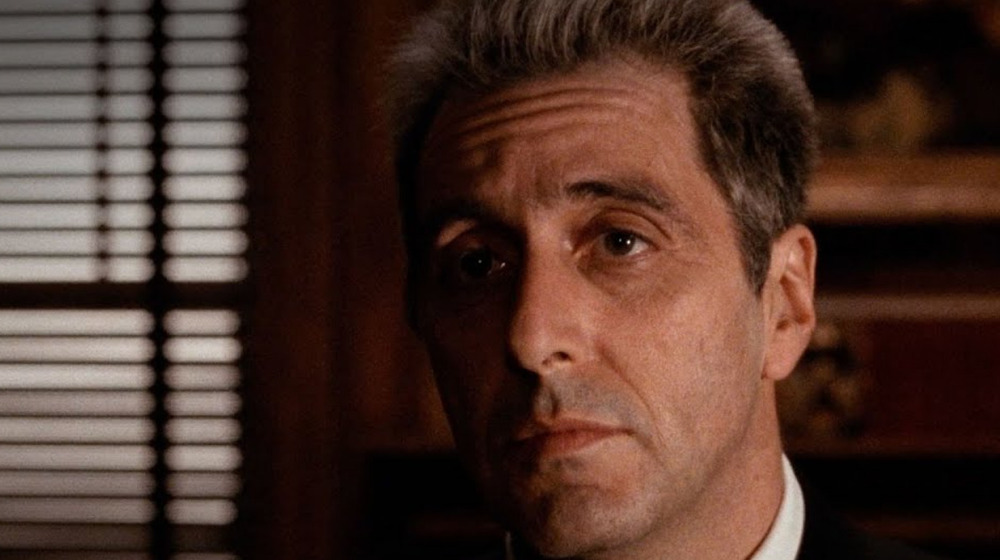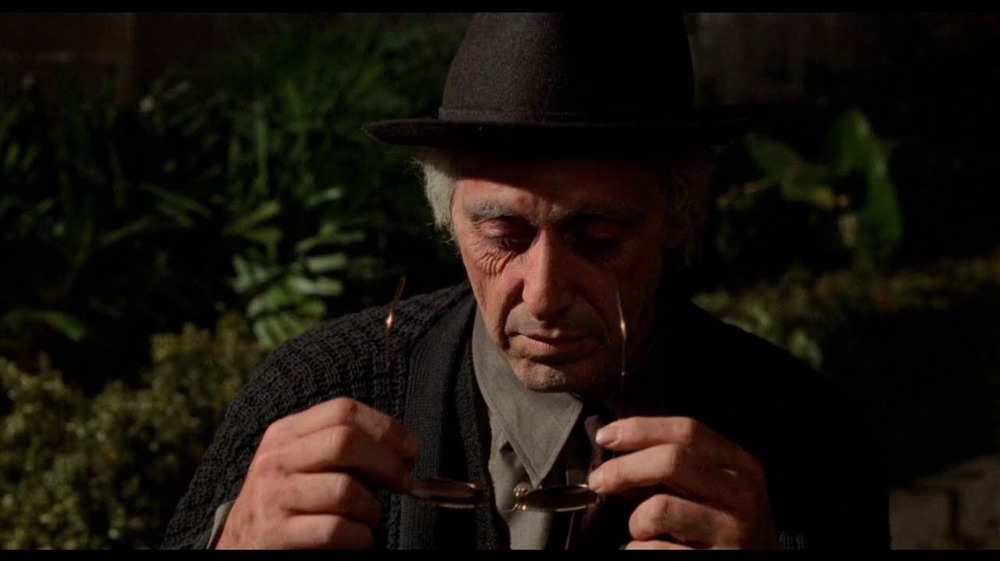The Major Moment You Don't Get To See In The Godfather, Coda
In honor of the film's 30th anniversary, director Francis Ford Coppola has released a recut version of The Godfather Part III called The Godfather, Coda: The Death of Michael Corleone. Though the third Godfather film was nominated for seven Academy Awards and grossed over $135 million worldwide, its legacy soon solidified as the sequel that just didn't live up to its behemoth, Best Picture-winning predecessors. The new version of the trilogy's final installment has a condensed run time, a new beginning, shorter scenes, and one pivotal moment that is completely cut out.
In the original ending to Godfather Part III, after Michael Corleone's (Al Pacino) daughter Mary (Sofia Coppola) is killed, we see flashbacks to Michael dancing with his first wife, Apollonia (Simonetta Stefanelli), with Kay (Diane Keaton) from the second film, and with Mary. The scene that follows features Michael, years later, sitting alone in Sicily. He puts on his sunglasses, collapses, and dies.
In the recut, there are no flashbacks to previous films. After Mary is killed, we see her dance with Michael, and cut to the elderly Michael in Sicily. But this time Michael does not die. Instead, he puts on his sunglasses, looks up, and the film fades to black. Then this quote appears: "When the Sicilians wish you 'Cent'anni,' it means 'for long life' ... and a Sicilian never forgets."
There's an obvious irony in the ending. The movie's title includes the Death of Michael Corleone, yet Michael does not die. Instead, audiences are left to speculate how much longer he will have to live with the pain of losing so many who were close to him at his own hands.
The Godfather, Coda has been praised by critics and audiences alike
Coppola's aim to vindicate the original final installment seems to be paying off. He told CBS News, "It was like pulling on the thread of a sweater that annoyed you, and you end up re-knitting the whole sweater," according to The Hollywood Reporter.
While The Godfather Part III holds Rotten Tomatoes scores in the 60% range from audiences and critics, the recut version has a solid 88% score from critics and 79% from audiences.
Brian Tallerico of RogerEbert.com wrote that the new version "feels even more elegiac — a true coda instead of just another part of the same story," and Richard Brody of The New Yorker, who praised the original installment too, wrote that the recut's "clarified lines of dramatic tension calmly burst into images of an explosive yet nearly static intensity." Brody also commended the new ending for emphasizing Michael's torment at being "cursed with a long life."
Even some of the film's stars are applauding the recut version. Diane Keaton, who was disappointed with the original cut, said the new version was "vastly improved" and "an incredible experience." Pacino himself thought Coppola's recut was "cleverly" edited and that the new version emphasized Michael's spiritual death and guilt over his physical death.
The recent praise for Coppola's recut version should provide enough evidence that it's never too late to alter a work to your original intention, even after 30 years.

